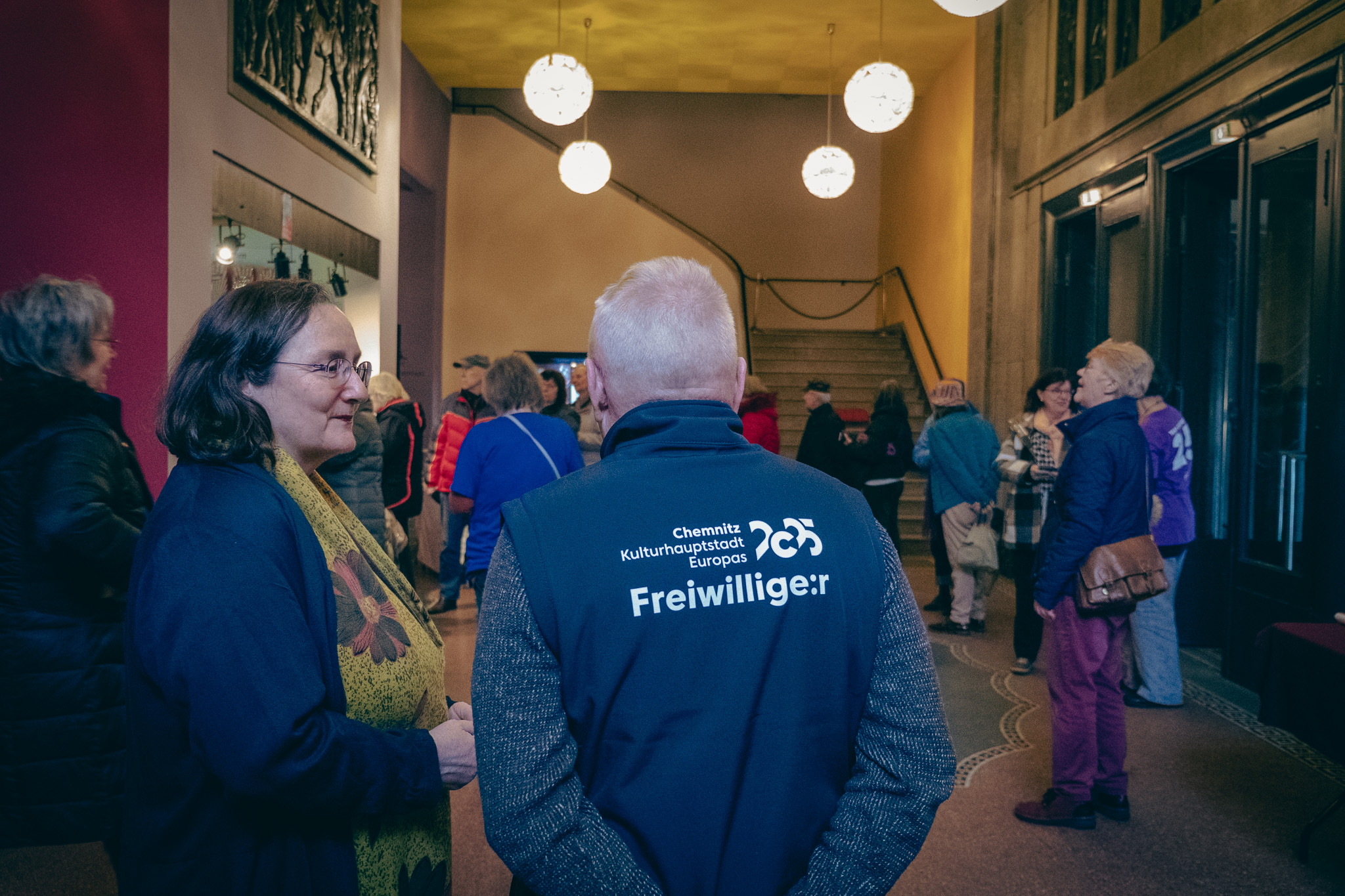In the volunteer editorial team, Volunteers for Chemnitz 2025 publish reports on their experiences, assignments and adventures around the European Capital of Culture.
Kristina lives in Neukirchen in the Ore Mountains. The former archivist and case manager has travelled to numerous events as a volunteer for Chemnitz 2025. She also loves writing. This gave her the idea of collecting the experiences of the volunteers - the starting signal for the volunteer editorial team.
As usual, the first stop on 26 March 2025 was the bakery. Giving cinema-goers a little refreshment is already a tradition.
Many people were already waiting outside the Metropol Chemnitz cinema to get in. The monthly cinema morning, which takes place on the last Wednesday, is primarily aimed at the interests of older people. The "Team Generation" of the European Capital of Culture Chemnitz 2025 gGmbH and the Metropol Chemnitz cinema are the initiators of this film series. The programme included the comedy "Toni and Helene".
What is this film about? Helene, a once celebrated theatre diva, lives in seclusion in a retirement home. At well over 80 and diagnosed with a terminal illness, she has already organised an appointment for euthanasia. By chance, Helene meets Toni, a pragmatic bon vivant. The initial dislike between the two involuntary roommates slowly gives way to a "pretty good" friendship and soon the unlikely duo are sitting in a stately vintage car and driving towards Switzerland. The fact that Toni doesn't have a driving licence, but the two arrive safe and sound at a hospice in Zurich, provides plenty of material for satire, drama, turbulence and tests of endurance. Toni and Helene do things that, according to the cliché, older ladies "normally" don't do. Their actions come dangerously close to minor offences, if not criminal offences. In one scene, Helene shouts loudly and insistently to a policewoman: "It's not a criminal offence to be older, but it's very, very difficult."
After the screening, I wanted to talk to cinema-goers as usual. Nothing came of it. A young man came up to me. He invited me to talk to his vocational students. Mr Radtke, a teacher at WBS Schulen gGmbH Chemnitz, and his students wanted to hear my opinion on the film from the perspective of a pensioner. Questions such as: "What challenges do you face as a pensioner? What is it like to get older? What is the meaning of life? What about euthanasia? How do you want to die?" were to be discussed.
I did feel a little uneasy going into the class. It later turned out that my worries were unfounded. After completing their apprenticeship, the future social assistants will be able to start their careers in the care sector as well as other areas. Giggling, smirking, disinterest or rejection - none of this was noticeable during the conversation.
I didn't want to go alone after all. I looked for reinforcements. Heike Steege, a volunteer over 60, agreed.
On the ninth of April, the time had come. At the beginning of the discussion round, the young people described their impressions of the film. My fellow campaigner and I spoke openly about our thoughts. For example, each of us talked about how we had felt and dealt with the deaths we had experienced in our private lives.
Mr Radtke moderated the event skilfully and thoughtfully. The discussion did not stop at the questions and topics suggested in the invitation. We exchanged questions and perspectives from the other generation in a relaxed and informal manner.
The two hours passed too quickly. Many questions remained unasked.
Text: Kristina Köhler, Heike Steege Photos: Peter Rossner
